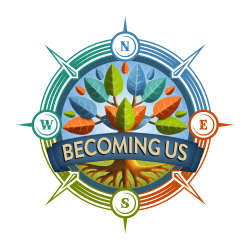Most couples fight. And if they didn’t, I’d be wondering why. Arguments don’t mean there’s something wrong with a couple’s partnership. In fact, conflict is a relationship stretch mark - a sign of growth - two people becoming aware of themselves and of the differences between them - and this is especially true in the first year of family when a whopping 92% of couples experience disagreements.
Arguing more with a partner can be distressing, especially if you thought having a baby would bring you closer to your partner than before. The truth is parenthood brings couples closer in some ways but pushes them apart in others. The trick is to know how to find your way back to each other.
“…conflict is a relationship stretch mark - a sign of growth - two people becoming aware of themselves and of the differences between them…”
What do most couples postnatal couples argue about? Most word-flinging is about the division of chores around the home, spending of finances (particularly if you’re both adjusting to being down to one wage), dad or partner’s involvement (or lack of involvement) with the baby, how to manage intrusive (or non-interested) in-laws and about having (or not having) sex. The opposite of arguing is not talking about the issues, which can be just as damaging to a relationship.
Postpartum couples have good reasons to argue. You are on a hormonal rollercoaster (dads have changes in hormones too), probably trying to juggle too much, sleep deprived and not looking after yourselves. When reserves are low, potential for conflict is high. There are less obvious reasons too.
The first year after baby is a time of great change, steep learning curves and new (and probably unanticipated) stresses. Stress generates anxiety and where there’s anxiety, there’s tension, and where there’s tension, it’s only a hop skip and a jump before somebody wants to yell at somebody else.
But that’s not all. What is often simmering underneath is that there are some even bigger shifts going on that may be completely out of you and your partner’s awareness: how do you feel about yourself as a new mother or father? How do you feel about your partner? Are there unspoken expectations, surprises or disappointments? Feelings of disillusionment or hurt?
“… Stress generates anxiety and where there’s anxiety, there’s tension, and where there’s tension, it’s only a hop skip and a jump before somebody wants to yell at somebody else…”
Parenthood brings a new vulnerability to each parent and to their relationship. When we’re feeling vulnerable, we’re more sensitive to our partner and the issues between us.
So, take a step back. Parenthood is the new normal for both of you and it’s up to the two of you to work together to create a new life that you’re both comfortable with. Babies bring much more work than two pairs of hands can possibly cope with, so call in outside help where you can to take some pressure off. Review your priorities. Family bonding comes first, everything else is secondary.
Then, don’t focus so much on the issues, but on how you communicate about them. When you broach a particular subject, speak simply, clearly and from the heart. The first few years is commonly a time of miscommunication and misunderstandings which can lead to emotional distance between partners.
Communicating well in these early stages of parenthood grows the bond between you and lays the foundation for your family. The stronger the bond, the less the issues will bother you.
Further reading: Becoming Us
The book Becoming Us, covers the 'need to knows', starting with planning during pregnancy, so you can have the very best beginning for your family. You’ll learn how to work through the normal issues most new parents face like finances, housework, intimacy and sex, dealing with in-laws, negotiating different parenting styles, balancing it all (and more!), and how to steer around or navigate the most common challenges as your baby grows into a toddler and beyond.

